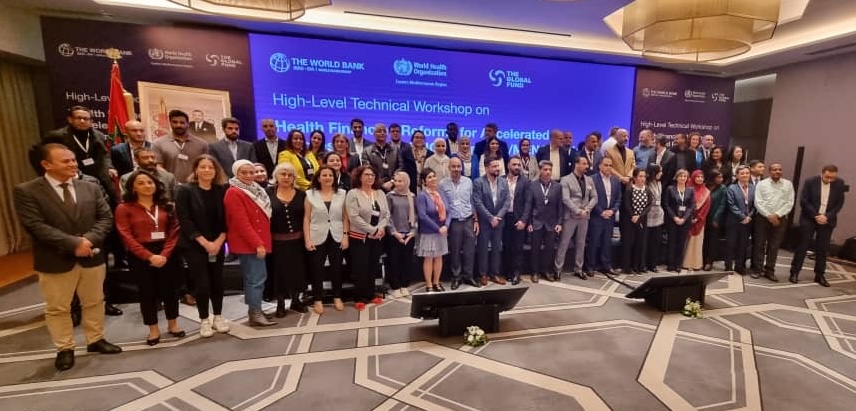A workshop in Rabat, Morocco, highlighted a commitment to improve health financing in the Middle East/North Africa and Eastern Mediterranean regions. Key outcomes included fostering collaboration among ministries and organizations, launching a partnership among major stakeholders, and planning to integrate health financing into initiatives of the Global Fund to Fight AIDS, Tuberculosis and Malaria.
In March 2024, the World Bank Group (World Bank), the World Health Organization (WHO) and the Global Fund to Fight AIDS, Tuberculosis and Malaria (Global Fund) hosted a three-day workshop, the High-Level Technical Workshop on Health Financing. The workshop in Rabat, Morocco, focused on driving progress towards universal health coverage in the Middle East/North Africa and Eastern Mediterranean regions. During the event, 60 to 65 delegates from 24 countries – mainly officials from ministries of health and finance and representatives from health insurance bodies – aimed to break down silos and foster cross-sectoral dialogue.
One of the most notable outcomes was the acknowledgement of the ministries of finance alongside the ministries of health, recognizing the interconnectedness of health and fiscal policies. This shift towards integrated dialogue is crucial for creating holistic health financing strategies. Equally significant was the inaugural collaboration between the World Bank, WHO and the Global Fund. The convergence of these players underscores a collective commitment and united front to align efforts and maximize impact in advancing health financing reforms. Moreover, the workshop shed light on the ambition of the Global Fund’s health financing unit to make health financing more visible in its agenda. This move underscores a strategic shift towards recognizing health financing as a critical determinant of health system resilience and sustainability.
GIZ and P4H Network represented by P4H country focal person
The conference was attended by Lisa Hoffman, from the Federal Ministry of Economic Cooperation and Development (BMZ) and by Aminata Tou, the P4H country focal person for Cameroon. Discussions are underway to extend similar collaborative platforms to other regions. Notably, the Global Fund and the Deutsche Gesellschaft für Internationale Zusammenarbeit (GIZ) / BMZ are already considering such an initiative in Sub-Saharan Africa. This proactive approach to knowledge exchange and collaboration is encouraging for accelerating progress towards UHC worldwide.


